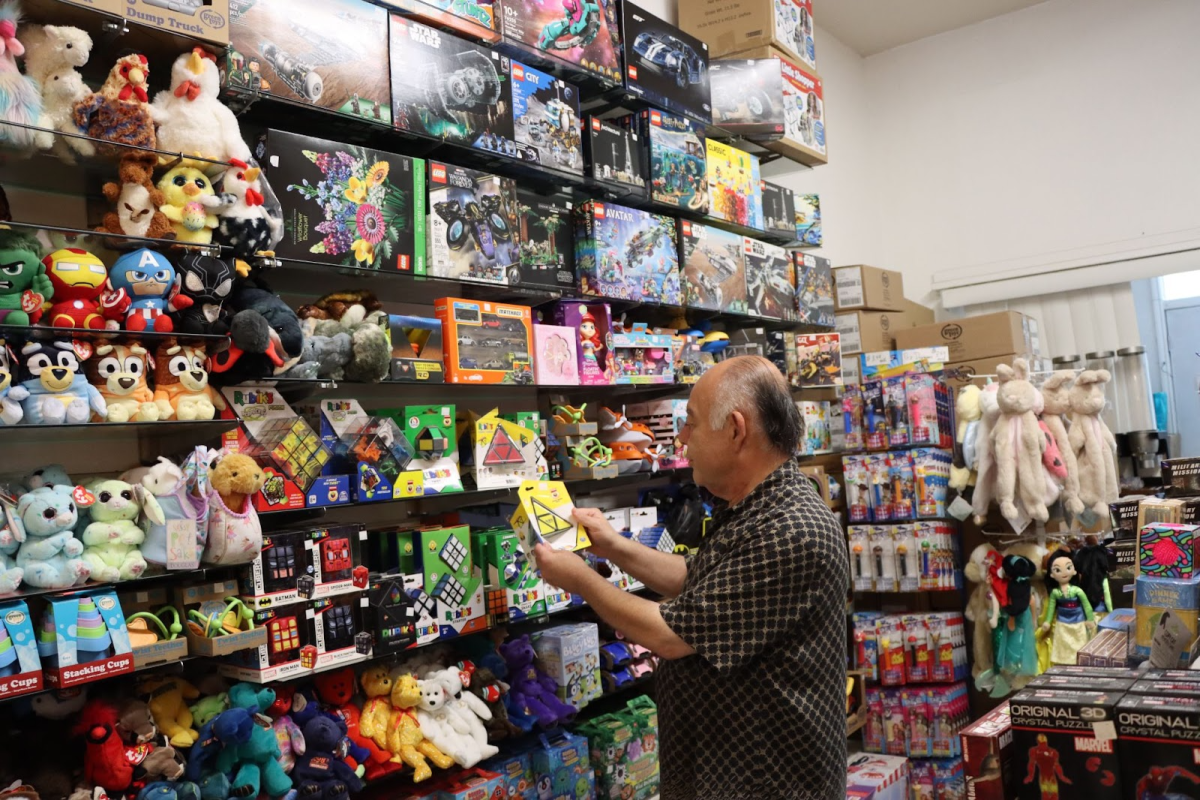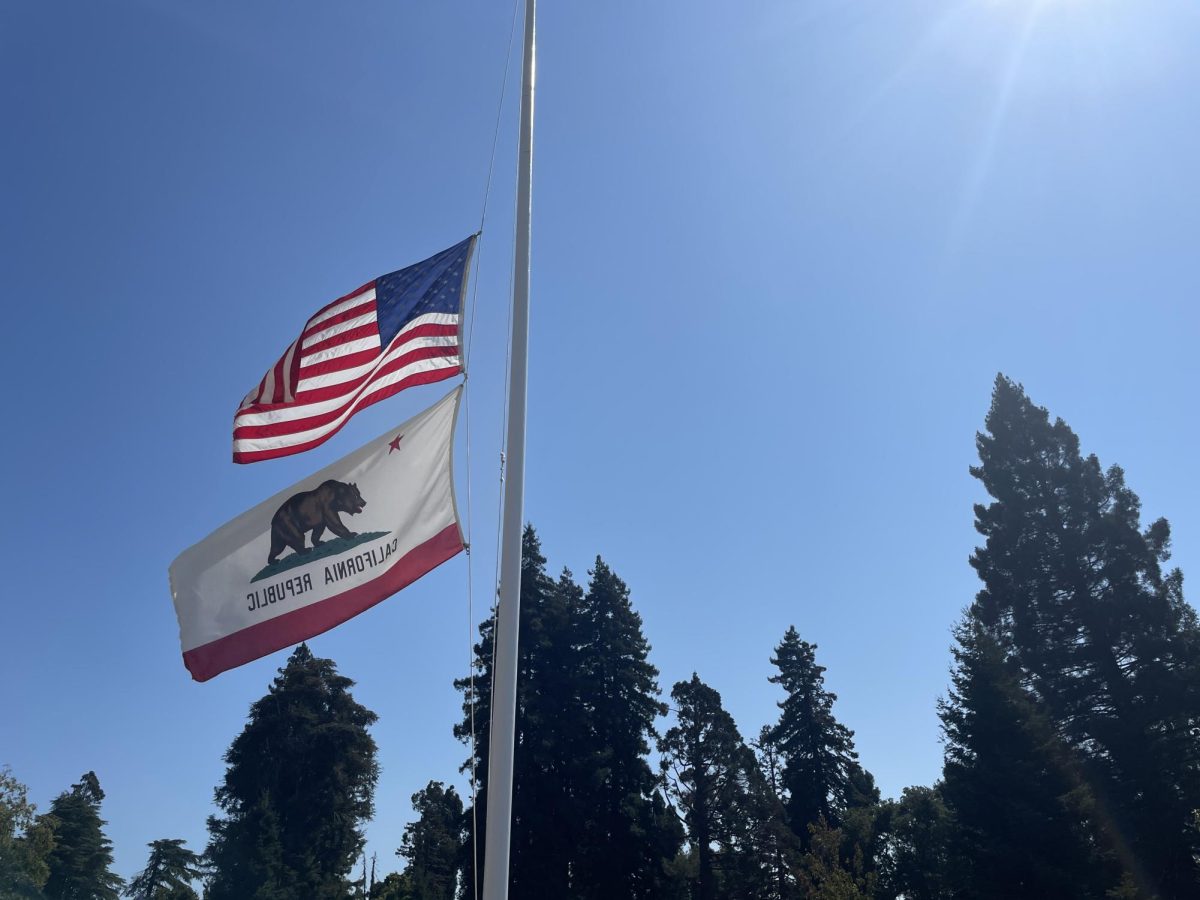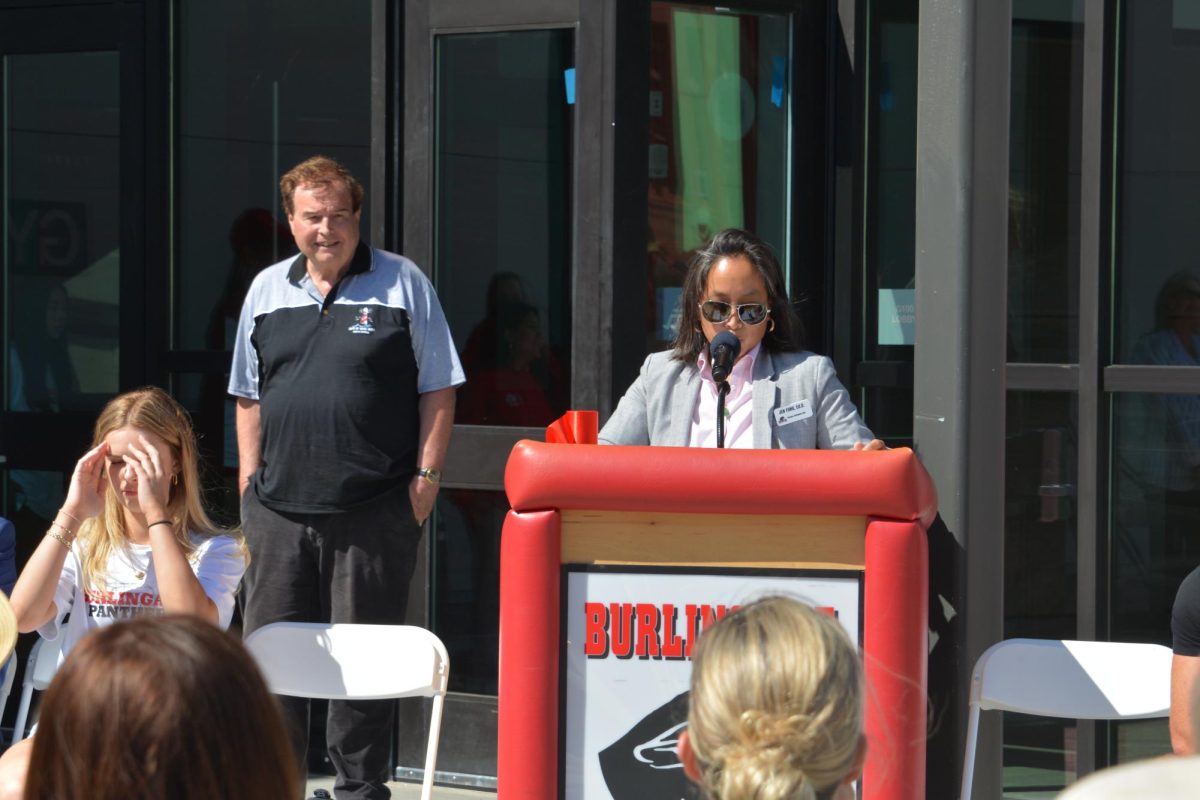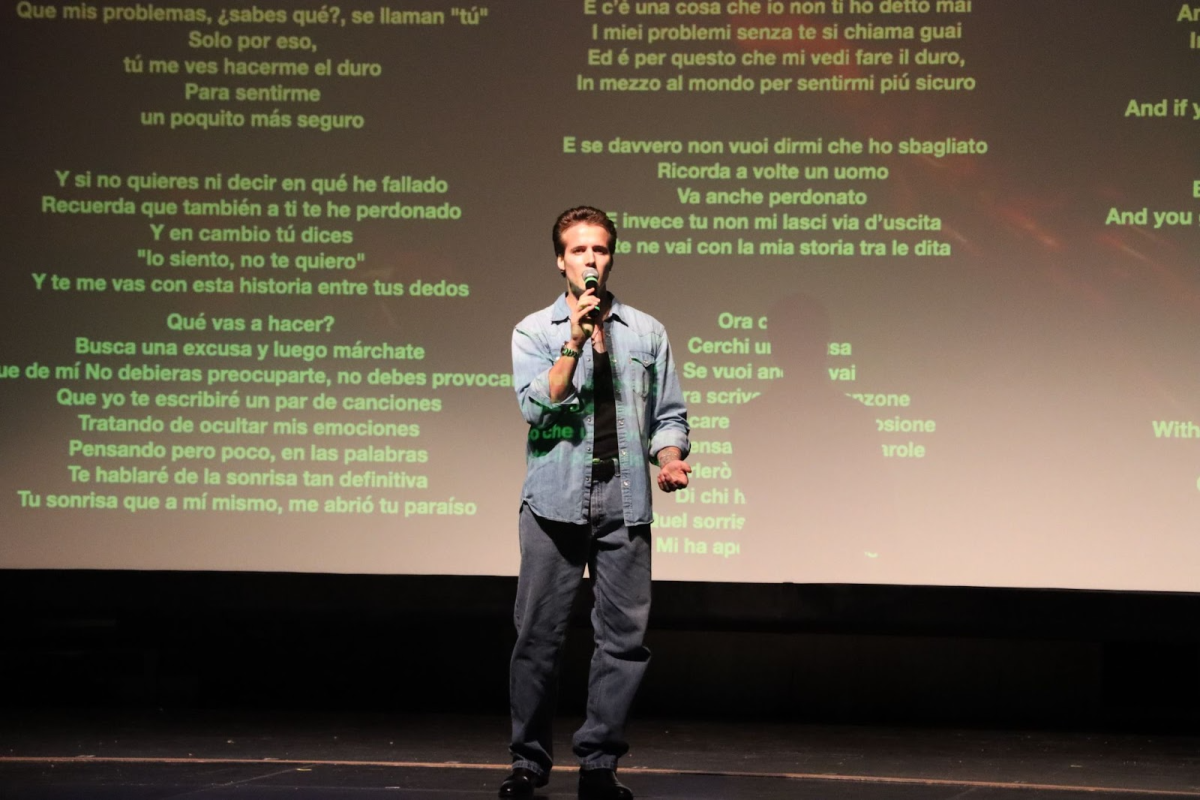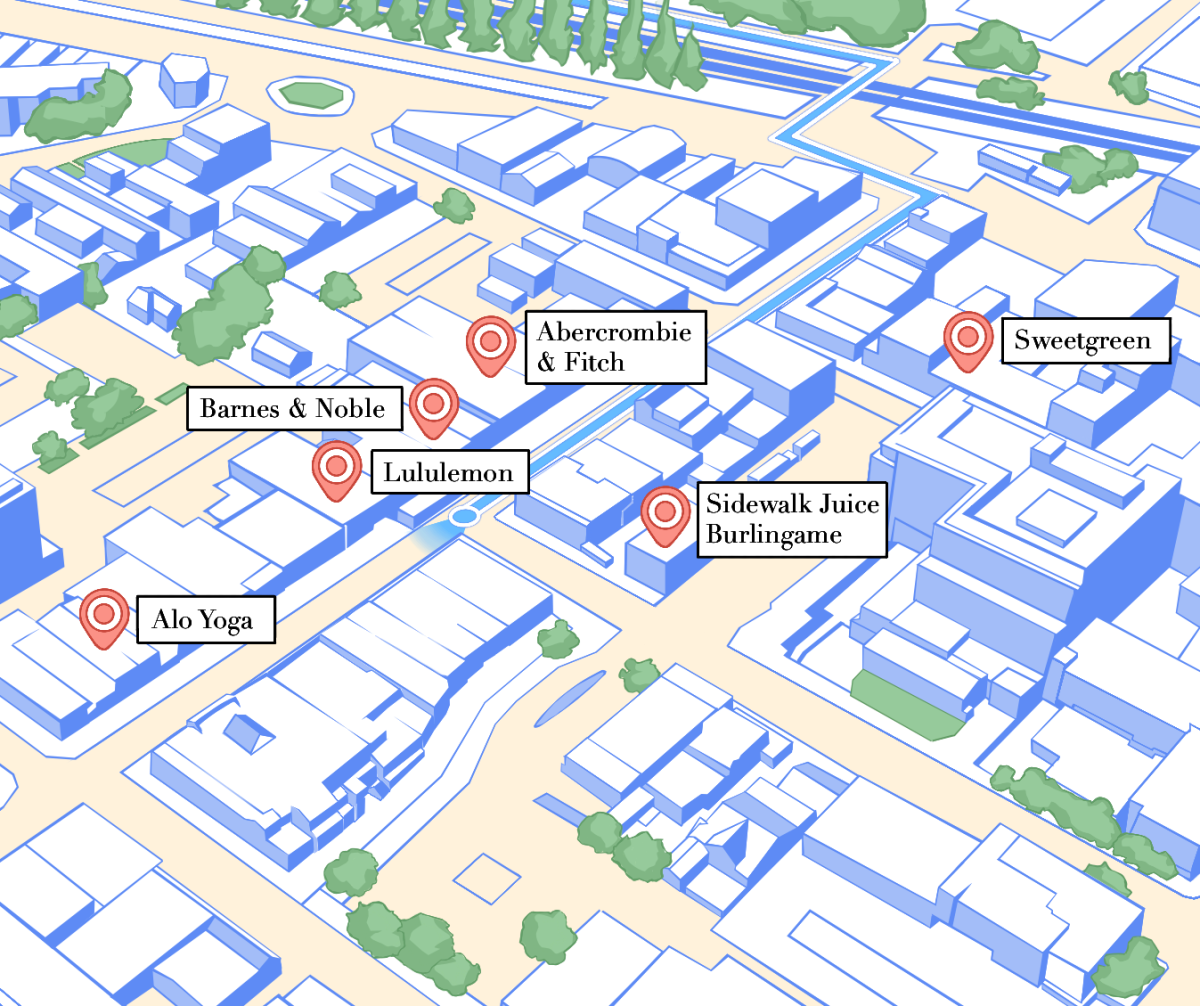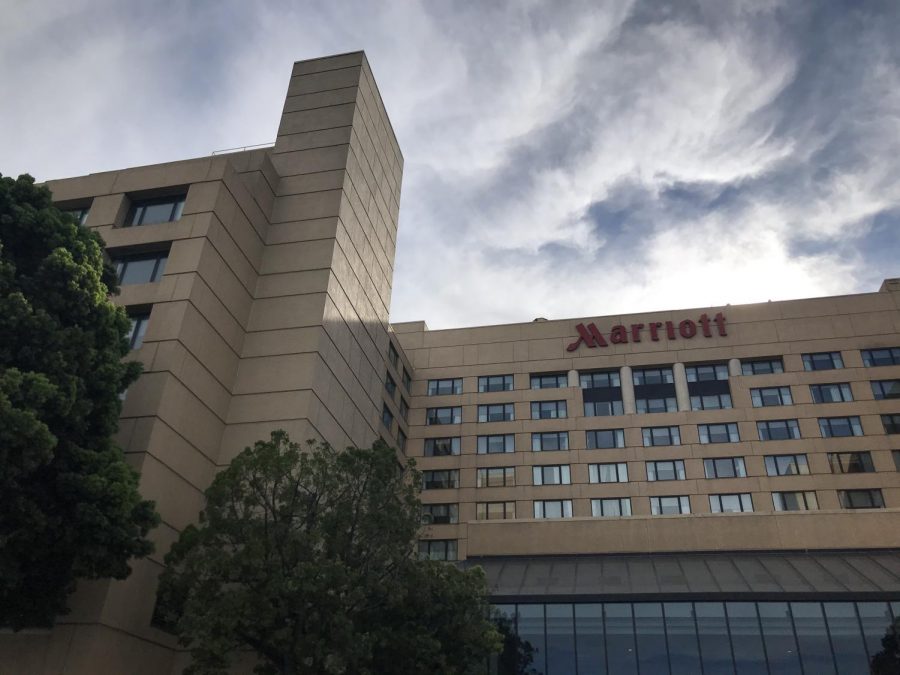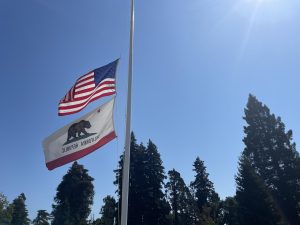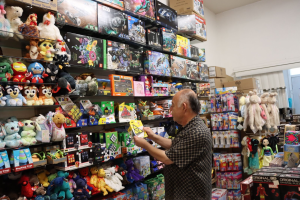COVID-19 complicates hotel industry in Burlingame
The San Francisco Airport Marriott Waterfront Hotel looks out to the SFO airport, a key piece to their business that is not functioning in the pandemic.
October 27, 2020
The hotel industry is prominent in Burlingame, and with the COVID-19 pandemic limiting travel, this industry has been hit hard as these hotels benefit from their proximity to the San Francisco International Airport (SFO). The San Francisco Airport Marriott Waterfront Hotel is one of the closest hotels to this traveling hotspot, and the branch manager, Lisa Kershener, has had to deal with the drop in travel.
“We have… a very large group of corporate clientele. We have a lot of technology in our neighborhood… and then now post COVID, a lot of these clients are staying home,” Kershner said.
Big and small hotels have had to make changes to keep up with San Mateo County’s guidelines in Burlingame and to help guests feel safe staying in their hotels during the pandemic. The owners of The Dylan Hotel, Barry and Christina Ongerth, are well aware of travelers’ concerns as they have had to battle to keep the hotel from closing in recent months. The Dylan Hotel, like all other businesses, has had to enforce mask wearing and social distancing, but the Ongerths have also had to put money into more washing and cleaning of the hotel.
“Because of having to do the additional washing and so forth, and what it [takes] to put together a bed, is more work. So it means more hours for the housekeeping, which ultimately costs the hotel more money,” Christine Ongerth said.
Despite the growing workload, and increase in cleaning, she stressed that hotels normally have to do a lot of disinfecting even without COVID-19, so the sanitization is routine.
“[A hotel is] the safest place you can stay, either if you’re just spending the night, or if down the road when things open up you’re having a meeting,” Kershner said.
This statement exemplifies the confidence hotel personnel have in the regulations established throughout the hotel.
Even though hotels in Burlingame have taken safety precautions, it has not changed the fact that they have lost a large portion of their revenue, which has in turn impacted Burlingame.
“Our hotel guests like to eat in downtown Burlingame and they like to shop… so it not only hurts the hotel business, it hurts the whole economy,” Kershner said.
This downturn in the hotel industry is not just an issue that hotels worry about, but also small businesses who no longer have tourists who might use services such as gyms or souvenir shops. But the local government is also being affected by the hospitality industry, as much of its budget comes from the occupancy tax; a 12% tax that guests pay to the hotels, which is given to the local government every month. Because there are so many hotels in Burlingame, the profits from the occupancy tax directly affect how much money the city can spend on development and other public services.
Through all of this, the hardest part for the people managing these hotels is the fact that they cannot be there to support their teams at the hotels. At The Dylan Hotel, the lack of revenue caused the Ongerths to furlough many employees, which it was a difficult decision for them to make especially in these uncertain times.
“You have a relationship with your employees and when they’ve been with you for twenty years, they’re kind of like family. And it’s very difficult to tell them, we don’t have any work for you,” Barry Ongerth said.
As travel reopens and restrictions begin to ease, hotel management is hopeful that increased revenue will help both their hotels and Burlingame recover.


